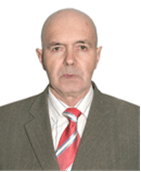Department of Plant Biology
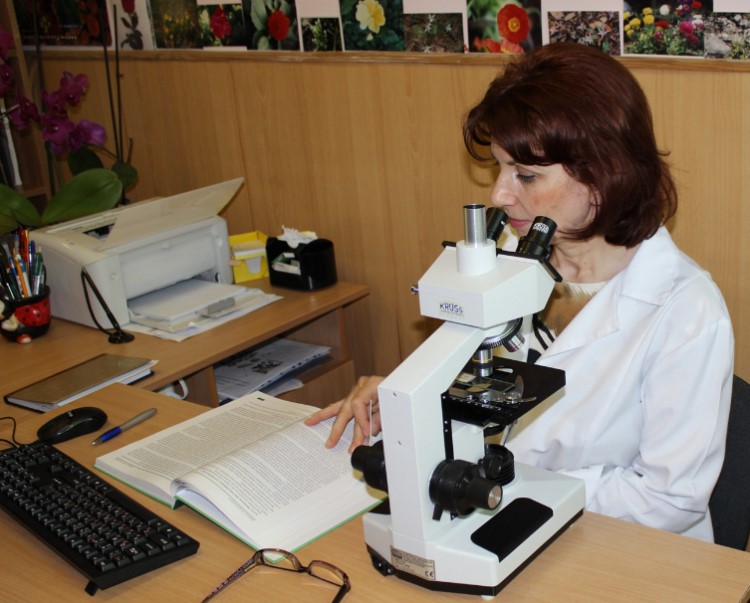
Currently, the department maintains professional collaboration with the scientific centers of the ASM (Botanical Garden, Institute of Genetics and Plant Physiology, Institute of Scientific Research “Porumbeni”, “Codrii” reservation), with the teaching community of most pre-university institutions, where graduates work. Faculty of Biology and Chemistry, as well as some university institutions in Moldova, Ukraine, Romania, Poland. Since 2016, the department has a collaboration contract with the Department of Plant Biology, State Agrarian University of Moldova, which aims to promote training and research by training the leading specialists in the field in the process of training, research and training of scientists – teachers, students, masters and doctoral students. A special place in the activity of the department is occupied – the training of teachers in schools and high schools in order to accumulate teaching values that contribute to improving creativity, protection and application of skills and knowledge in practice.
Of particular interest to students is the “Botanist” circle, coordinators: Eugenia Chiriac, PhD, associate professor Boris Nedbaliuc, PhD, Associate Professor, Sofia Grigorcea, PhD, Associate Professor, whose meetings are often attended by students and teachers from many high schools and centers of excellence in Chisinau.
Most of the professors in the department are involved in the elaboration of the materials and the party of the Biology Olympiad (zonal and republican). Since the founding of the department and until now, all scientific research has been carried out in two directions corresponding to the two subdivisions of the department: Biodiversity, improvement and rational use of natural resources and Contemporary issues of biology teaching.
II. Short history
The Department of Plant Biology was established in 1954 in the context of the reorganization of pedagogical education in the our country. At that time it was called the Department of Botany and was headed by the young (then) doctor of biology, Boris Matienco. The department has 9 active members, including 4 doctors in biological sciences: B.Matienco; Gh.Simonov; V.Şuberneţchi; P.Crăciun, 12 cumulars and 6 laboratory workers. Through the effort of the members of the department, courses were developed and taught: Morphological and systematic botany; Plant physiology; Basics of agriculture; Darwinism; Methodology of teaching biology. Subsequently, many of the department’s collaborators became well-known personalities in research, education and other fields of the national economy.
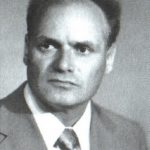
Boris Matienco, doctor habilitat, academician. The first head of the Department of Botany (1955-1959). He was later invited to Chisinau, where he devoted himself to research: the founder of the Scientific School in the field of Plant Anatomy and Cytology in the Republic of Moldova; elaborates and publishes the first Manual of Plant Morphology in Romanian (with cyrillic characters); author of the strategy for fruit development, structure, ultrastructure of their evolution and in vitro carpoculture as a new direction in plant biotechnology; the initiator and promoter of modern methods of electron microscopy in Moldova; the founder of the Carpotron Experimental Complex – 1. Man Emeritus in Science and Education, winner of the State Prize of the Republic of Moldova, Decorated with the order “Gloria muncii”, and the medal “Dimitrie Cantemir”.
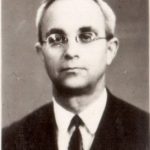
The vacant position of head of the department, after the departure of Mr. Boris Matienco, for 12 years (except for the years 1974-77) is filled by Vladimir Șubernețchi, doctor, associate professor. The didactic and scientific activity which materialized in the elaboration and teaching of the courses of Morphology and Plant Systematics, as well as the management of practical works / laboratory (Plant Morphology and Anatomy), field practices, including extracurricular activities, etc. The results obtained were reflected in original articles, especially in the field of Plant Morphoanatomy and Didactics of Biology and published in various journals and collections in the country. In 1962, based on the Department of Botany, the Department of Plant Physiology and Methodology of Biology Teaching was formed, headed by Mr. Petru Crăciun, Doctor of Biology.

A year later, Petru Tarhon, habilitated doctor, university professor, became the head of the respective department. Subsequently, he devoted himself to research, becoming a scientist in the field of Physiology of angiosperm plants, introduced in Moldova and Experimental Botany, Cell Biotechnology, Evolution of the water regime. He founded a new research direction in biology: Introductory plant ecophysiology. He introduced and acclimatized in Moldova the plants of Albizzia iulibrissin Durazz, creating a new population of plants, resistant to the climatic conditions of Moldova. Founder and President of the League of Educators of the Republic of Moldova. Member of the Society of Botanists of Moldova. Man Emeritus in Science and Education. Laureate of the State Award. Holder of the “Dimitrie Cantemir” medal.
After the departure of Petru Tarhon, the Department of Plant Physiology and Methodology of Biology Teaching was led by Victor Crupinschi, specialist in Didactics of Biology. During the years 1964-65, based on the Department of Plant Physiology and Methodology of teaching biology, the Department of the Basics of Agriculture was established, led by Ion Gemăneanu – doctor in agriculture.

During the years 1969 -1974, respectively, 1977 -1984, Ion Danilov, doctor, associate professor, was at the head of the Department of Botany. Specialist in Algology, Hydrobiology, Plant Systematics. He has conducted thorough research on bioindicator and invasive algae species in various aquatic ecosystems, as well as their productivity. He developed and taught courses in Plant Systematics, Morphology and Plant Anatomy. During the years 1985-1988 he worked as vice dean of the Faculty of Biology and Chemistry. The special specialized training and the organizational capacity determined the co-optation for a period of 3 years of Mr. Ion Danilov as a teacher in Cuba.
The best graduates of the Alma Mater institution were invited to work at the department. The activity of teachers was focused on improving the content, methods, forms and means of training, optimizing the ecological and cultural-aesthetic orientation. A special role belonged to the scientific research of the students. Many of the members of the department have dedicated their lives simultaneously to the teaching and research of the plant world, becoming recognized personalities in their respective fields, both in the country and abroad, such as:

Eudochia Zagorneanu, doctor habilitat, professor. After graduating from the Faculty of Biology and Chemistry, she worked as a lecturer-assistant at the Department of Botany (1961-1963). Subsequently, she devotes himself to research and teaching. Achieves outstanding results in several directions of biology research, such as: the conception of idio adaptive histological carpo types; ontomorphogenesis of the structure of fruits of the genus Lycopersicon (tomatoes); ultrastructure of carotenoidoplasts; he conception of the polystructural organization of the lysosomal apparatus; the initial carpel pattern model of fruit growth and development. Appreciated with the Prize of the Presidium of the Academy of Sciences of the Moldovan SSR; Honorary diploma of the ASM Presidium; Diploma of the National Accreditation and Attestation Council.
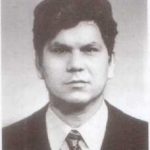
Valentin Codreanu, doctor habilitat in biology. After graduating from the Faculty of Biology and Chemistry, he worked as a lecturer – assistant at the Department of Botany of the Pedagogical Institute in Tiraspol (1963 – 64). Then He devoted himself to scientific activity: head of the Plant Anatomy Laboratory; interim head of the Laboratory of Embryology and Plant Anatomy; principal scientific researcher at the Botanical Garden; author and co-author: scientific papers; monographs, etc.

Andrei Negru, doctor habilitat, academician. After graduating from the Faculty of Biology and Chemistry, he worked as a lecturer – assistant at the Department of Botany of the Pedagogical Institute in Tiraspol (1963-66). Subsequently, he devoted himself to scientific activity, becoming a prominent personality, known and appreciated in the country and abroad for his achievements in the field of plant biology, fossil and contemporary flora. Academician Andrei Negru is the founder of the School of Paleobotany in the Republic of Moldova. Author of 127 paleofloristic new taxons to science. He has trained 24 doctors and habilitated doctors in biological sciences. He holds two patents. For his substantial contribution to the development of botanical sciences he was decorated with the state distinction ” Meritul Civic “, “Grigore Antipa” Award, “Dimitrie Cantemir” Medal, First degree diploma of the Government of the Republic of Moldova.

Ana Ștefârță, doctor habilitat in biolog. After graduating from the Faculty of Biology and Chemistry, he worked as a lecturer-assistant at the Department of Botany of the Pedagogical Institute in Tiraspol (1965-68). Subsequently, he devoted himself to scientific activity: coordinating scientific researcher in the Flora and Geobotanical Laboratory within the Botanical Garden; head of the Herbarium, active participant in the construction of the Botanical Garden; author and co-author of an appreciable number of scientific papers, monographs, etc.
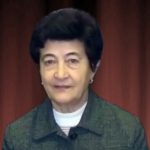
Anastasia Ștefîrța, doctor habilitat, research professor. She studied at the State University of Tiraspol (1960-1965), after which she joined the teaching and research process as an assistant at the Department of Plant Physiology (1965-1972). Subsequently, he works within the ASM. The research carried out throughout the period of activity was / are focused on the problem of plant water regime. She has carried out several projects as a scientific leader, The scientific activity is reflected in over 260 papers, including 6 monographs, over 140 articles in prestigious journals and 90 reports at various specialized forums in the country and abroad, brochures and collections of laboratory papers on plant physiology. He holds 27 patents. The scientific-applied elaborations were mentioned at the international salons of inventions with gold, silver, bronze medals, the AGEPI Grand Prize and other distinctions. She holds the WIPO Gold Medal.
III. Teaching staff
Teachers from the Department of Botany (from that period): Valentin Codreanu, Vasile Chirtoacă,, Larisa Neniţă (Zamba), Afanasie Istrati, Ion Pavalache, Ion Mândâcanu, Lucia Malancea, Tudor Seinic, Eugenia Pulbere, Vasile Grati, rigorously selected on the basis of skills and professionalism, together with Vladimir Șubernețchi, doctor, associate professor (docent), Ion Danilov, doctor, associate professor (lecturer), Varvara Colomeicenco, doctor, associate professor (lecturer), Andrei Blajevschi, senior lecturer, Irina Jîlchina, doctor , associate professor (lecturer), Nina Migulea, doctor, associate professor (lecturer) and others, submitted an extensive scientific-didactic activity that contributed to improving the quality of training at the department.
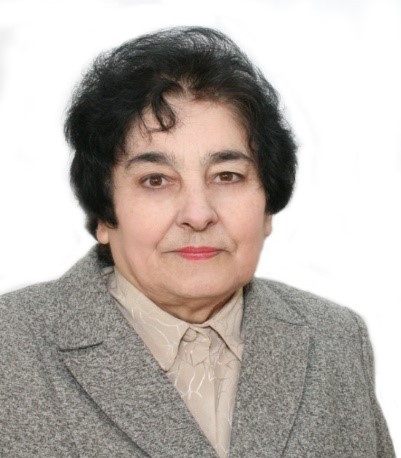
Pulbere Eugenia, associate professor
The didactic and scientific activity carried out by the department’s staff has permanently contributed to the development of general education and research in the Republic of Moldova. One of the main objectives was and remains – to complete the department with young and talented staff. n this context, the graduates are invited to the department – Eugenia Chiriac, class of 1985 and Boris Nedbaliuc, class of 1986. Adam Begu is an assistant lecturer at the Institute for Scientific Research in the Field of Irrigated Agriculture and Vegetables.
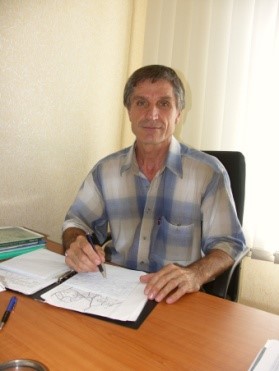
Begu Adam, doctor habilitat, professor
In the summer of 1992, when the war on the Dniester began, an order for the urgent withdrawal of the first Higher Education Institution in Chisinau was issued by the first statesmen of the Republic of Moldova. Thus, the Pedagogical Institute “Taras Șevcenco” in Tiraspol, becomes the State University of Tiraspol (based in Chisinau). The university community, including the members of the department: (with a few exceptions, who decided to stay in Tiraspol) were faced with a new beginning. A work of great responsibility followed: the restoration and arrangement of laboratories and classrooms with appropriate equipment, materials and instruments; creating the conditions for the optimal development of classes, laboratory works and field applications. There were also optimizations between departments. So The Department of Botany merges with the Department of Plant Physiology and Methodology of teaching biology (with the respective professors: Vladimir Macoveev; Mircea Navroțchi; Rodica Nedbaliuc) and the Department of Agricultural Basics (Vladimir Olaru) in a single department – Department of Botany and Plant Physiology.
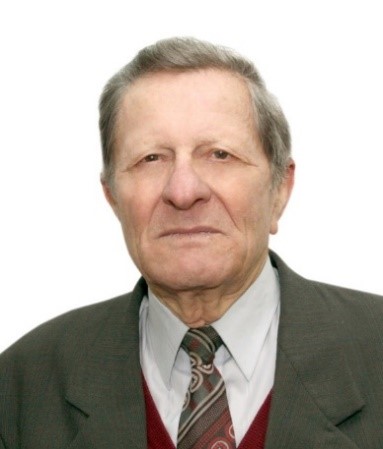
Macoveev Vladimir, doctor, associate professor
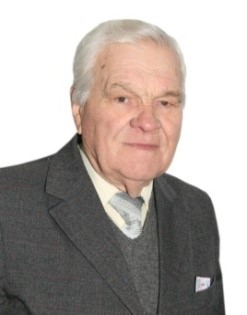
Navroțchi Mircea, doctor, associate professor
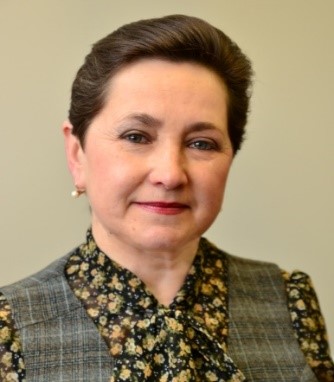
Nedbaliuc Rodica, senior reader
The doctors of agricultural sciences are invited to the newly formed department: Petru Patienco and Elena Iurcu-Străistaru, as well as the recent graduates: Nicolai Aluchi (class of 1993), Stela Gânju (class of 1993), Ion Botezatu (class of 1993); Liliana Zepca (1997 promotion).
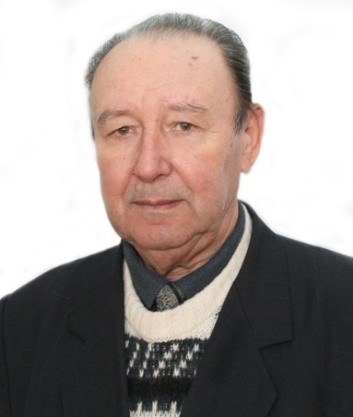
Patienco Petru, doctor habilitat, university professor
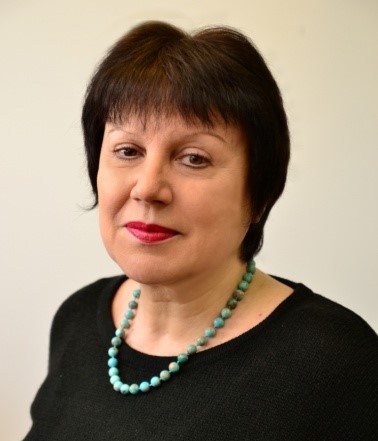
Iurcu-Străistaru Elena, associate professor
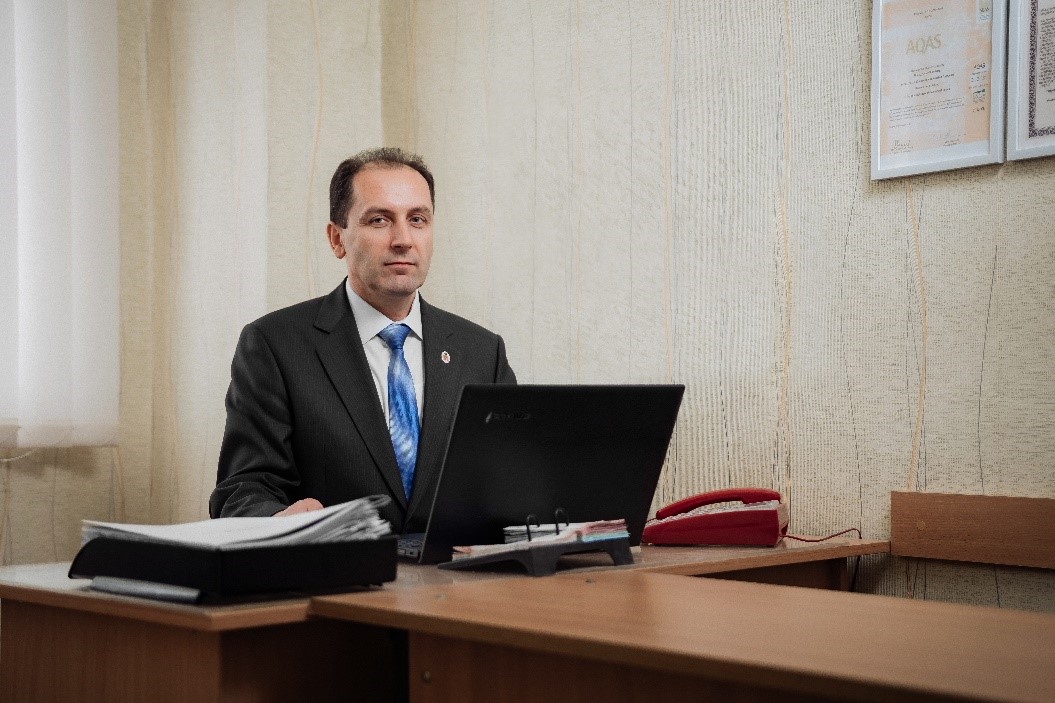
Aluchi Nicolai, doctor, associate professor
In December 2000, in connection with the Reform of university and pre-university education in the Republic of Moldova, the Department of Plant Biology was formed, further led by Vasile Grati, doctor habilitat, professor.
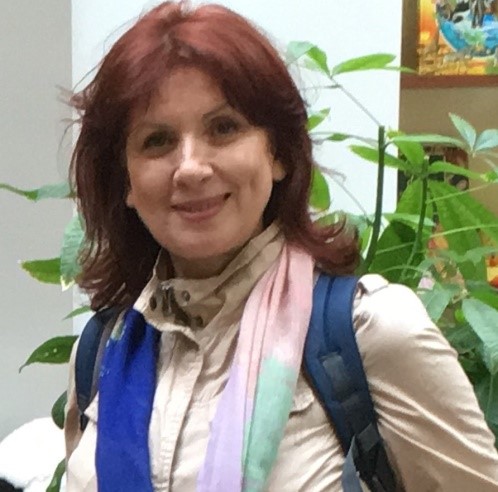
Chiriac Eugenia, doctor, associate professor
During this period, the disciplines at the department are in a continuous process of updating, integrating the new ordinary fields with the basic ones in terms of application and interdisciplinarity, both in the first cycle – (licență) and second cycle – (master).
New tenured staff members are also invited to the department and by cumulation.
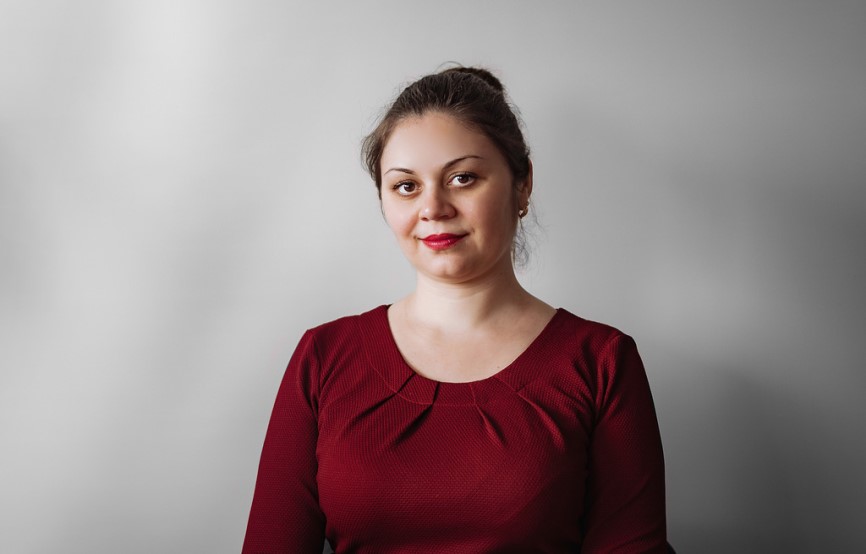
Grigorcea Sofia, doctor, associate professor
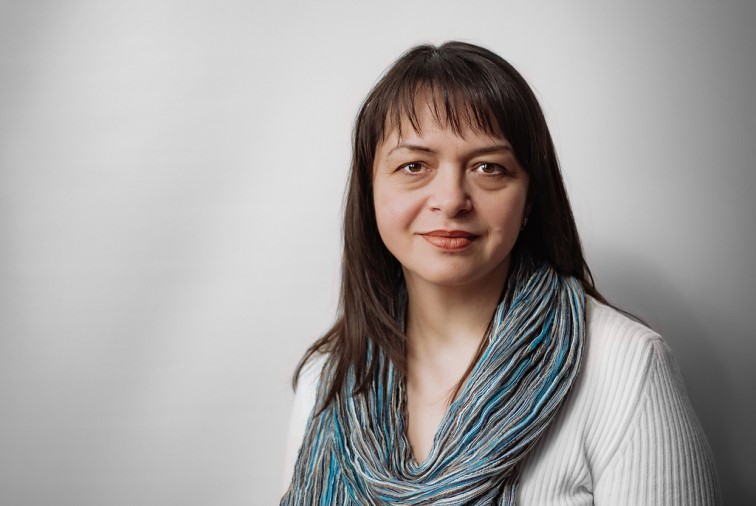
Daniela Placinta, assistant, professor of biology, doctoral student
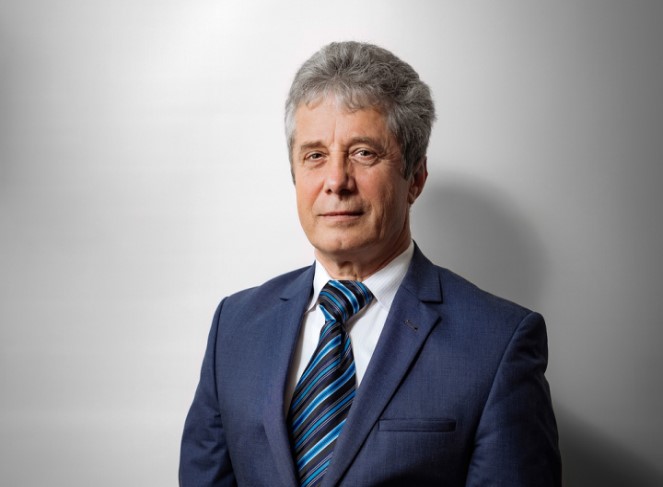
Pavel Pînzaru, PhD, coordinating scientific researcher, associate professor
IV. List of disciplines
The Department of Plant Biology contributes to the training of highly qualified staff in the following specialties (with the respective disciplines):
First Cycle License:
Full-time education:
Biology: Plant morphology I; Plant morphology II; Cytology; Microbiology; Plant systematics I; Plant systematics II; Vegetation of Moldova; The biological basis of agriculture; Genetics; Biogeography; Hydrobiology; Evolutionism; Plant physiology; Initiation practice.
Ecology: Plant morphology I; Plant morphology II; Ecological cytology; Ecological microbiology; Plant taxonomy I; Plant taxonomy II; Genetics; Biogeography; Floriculture; Evolutionism; Plant ecophysiology, production practice; License practice.
Biology and chemistry Plant morphology I; Plant morphology II; Plant systematics I; Plant systematics II; Cytology; Didactics of biology; Microbiology; Agrobiology; Pedagogical practice I; Genetics; Biogeography; Evolutionism; History of biology; Plant physiology; Initiation practice; Pedagogical practice II; License practice.
Chemistry: The basics of biology.
Chemistry and biology: Plant morphology; Plant systematics; Cytology; Didactics of biology; Plant physiology; Phytopathology; Genetics; Hydrobiology.
Part-time education:
Biology: Plant morphology I; Plant morphology II; Cytology; Plant systematics I; Plant systematics II; Microbiology; Genetics; Floriculture; Didactics of biology; Pedagogical practice I; Biogeography; Plant physiology; History of biology; Pedagogical practice II; Evolutionism; The biological basis of agriculture.
Biology and sanology: Plant morphology I; Plant morphology II; Cytology; Plant systematics I; Plant systematics II; Genetics; Floriculture; Didactics of biology; Pedagogical practice I; Biogeography; Plant physiology; History of biology; Pedagogical practice II; Evolutionism; Medicinal plants; Medical microbiology.
Chemistry: Botany; Plant physiology.
Cycle II Master:
Modern biology and technologies in training: Contemporary methods of training in biology; History and methodology of biology; Bionics; Physiology of ecological resistance of crop plants; Bioindicators and environmental quality assessment; Experimental mycology; Flora and vegetation of the Republic of Moldova; Internship in the specialty.
Applied Biology: Human Genetics and Molecular Biology; History and methodology of biology; Bionics; Physiology of ecological resistance of crop plants; Bioindicators and environmental quality assessment; Experimental mycology; Flora and vegetation of the Republic of Moldova; Internship in the specialty.
Biology and psychology of health: Human genetics and molecular biology; Phytotherapy; Medical microbiology.
Since the year of the founding of the department and until now all scientific research has been carried out in two directions corresponding to the two subdivisions of the department: Biodiversity, improvement and rational use of natural resources and Contemporary problems of biology teaching.
Currently, the Department of Plant Biology has 4 laboratories:
Laboratory of Morphology and Plant Anatomy
Objectives: the study of the cell – as a structural and functional unit of the living; knowledge of the structure, ultrastructure, chemical composition, reproduction, differentiation and methods of studying prokaryotic and eukaryotic cells. studying the particularities and diversity of the structure of plant organisms, in terms of the function and changes in the evolution of organs (vegetative and generative) depending on ecological conditions; studying the diversity of plant reproduction and the evolution of sexual reproduction; the evolutionary study of the diversity of vital forms as a result of the interaction with the environment.
The research group is active in the laboratory: Plant cytogenetics and plant breeding.
Plant Systematics Laboratory
Objectives: to study the principles, methods and rules for classifying the plant world in terms of knowledge, distribution and rational use of plant resources on Earth, including the adaptation of plant organisms to different living conditions; studying the kinship links between different groups of plant organisms, awareness of the need to protect and conserve biodiversity in the current conditions; accumulation and systematization of information in the elaboration of principles and procedures for the use and conservation of phytocenoses; studying the links between plant and animal communities and their components in terms of geographical and anthropogenic factors.
Within the Plant Systematics laboratory there are 2 research groups: Algology and Mycology and Monitoring and bioindication of terrestrial ecosystems.
Plant Physiology Laboratory
Objectives: knowledge of the physiological-biochemical and molecular mechanisms of the vital processes of plants; knowledge of the essence of the most important vital processes – photosynthesis, respiration, growth and development of the plant organism; familiarizing students with the diversity of microorganisms and their role in nature, the national economy and medicine; studying the structural and taxonomic peculiarities of phytoparasites detected in different agrocenoses.
Within the Laboratory of Plant Physiology, 2 research groups are active: Water status and regulation of water homeostasis in the interconnection of organs “roots-stems-leaves” in corn and Studying different fruit crops according to resistance to the action of stressed biotic factors, pathogens and phytophagous.
Biology Didactics Laboratory
Objectives: familiarizing students with the content of the curriculum, biology textbooks, additional literature on biological subjects and the specifics of their teaching in the modern school. theoretical knowledge of the study material, identification of methods and forms of work with students in order to design and organize lessons in biology teaching.
The research group is active in the laboratory: Learning through research through the prism of interdisciplinarity.
Within the Faculty of Biology and Chemistry, the Scientific Laboratory of Ecological Biotechnologies operates in a cluster with the Department of Plant Biology, led by Boris Nedbaliuc. Here, students have the opportunity to conduct scientific research in various biological, chemical, etc. disciplines. working on various projects.
Of particular interest to students is the „Botanist” circle, whose meetings are often attended by students and teachers from many high schools and centers of excellence.
Most of the professors at the department are involved in the elaboration of the materials and the party of the Biology Olympiad (zonal and republican).
The social and political changes of the country in the last period were also reflected on the activity of the department.
In this context, the members of the department are always concerned with: the permanent improvement of the training and research conditions of biology students; periodic review / elaboration of curricula (analytical programs) for the course units of the department; promotion at a high scientific-methodical level of fundamental courses, specialization, seminars, practical and laboratory works; organizing individual and extracurricular work with students; directing the process of elaboration and defense of bachelor’s and master’s theses; organizing and conducting scientific research, highlighting the applicative aspect, implementing some aspects in the instructive-didactic process; organizing and directing pedagogical practice, internships in production, bachelor’s and master’s degrees, etc.
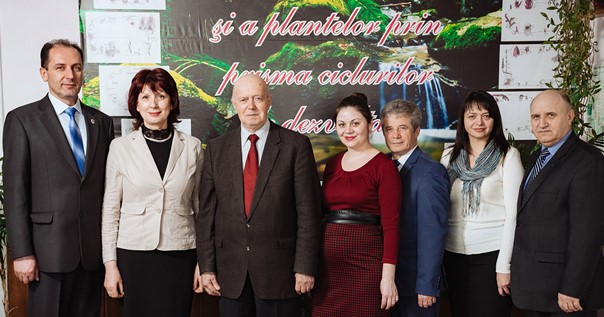
The year 2020 began with a new challenge both for our country and for the whole world, the pandemic – COVID-19. The entire civil society intervened with response measures to mitigate the impact of this infection on the education system. The members of the Plant Biology department, along with the entire teaching staff of Tiraspol State University, mobilized to find technical solutions in order to facilitate the training of students in online format, using as a tool – information technologies. Under these conditions, students and teachers already communicate not in the classroom, but at home, at the computer monitor, so that the study process is not stopped. Several educational platforms are used, to which students have access to course materials, and have the opportunity to send to teachers the topics completed, including individual work. Thus, the activity of the department members demonstrates that the return from quarantine to the normal training process will have a positive impact on the more efficient use of digital tools in various instructive-educational activities.
- Periodic review / elaboration of curricula (analytical programs) for the course units of the department;
- Promotion at a high scientific-methodical level of fundamental, specialization courses, seminars, practical and laboratory works;
- Organizing individual work with students; directing the process of elaborating and defending the bachelor’s and master’s theses;
- Organizing and conducting scientific research, highlighting the applicative aspect, implementing some aspects in the instructive-didactic process;
- Organizing and directing pedagogical practice, internships in production, bachelor’s and master’s degrees.

